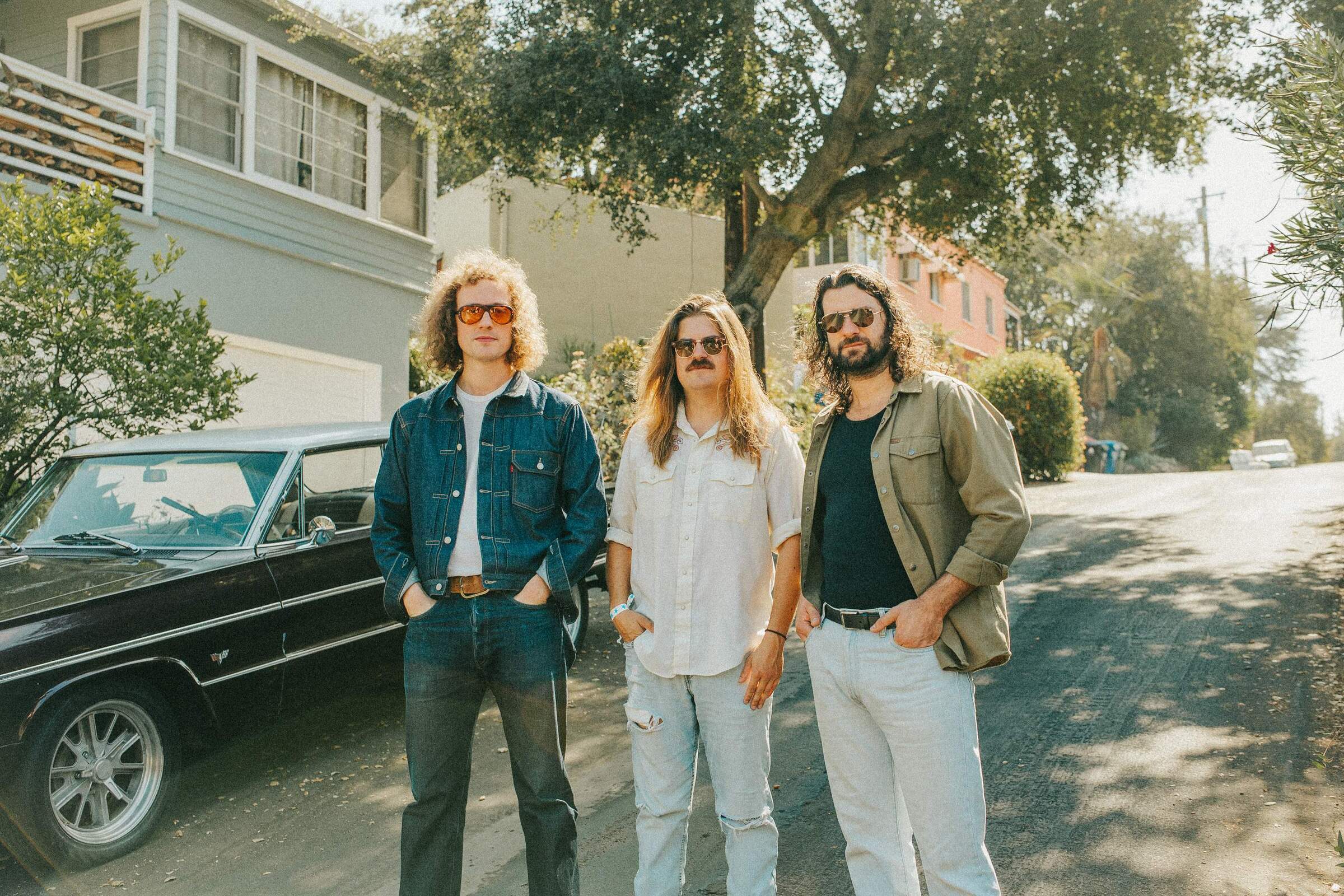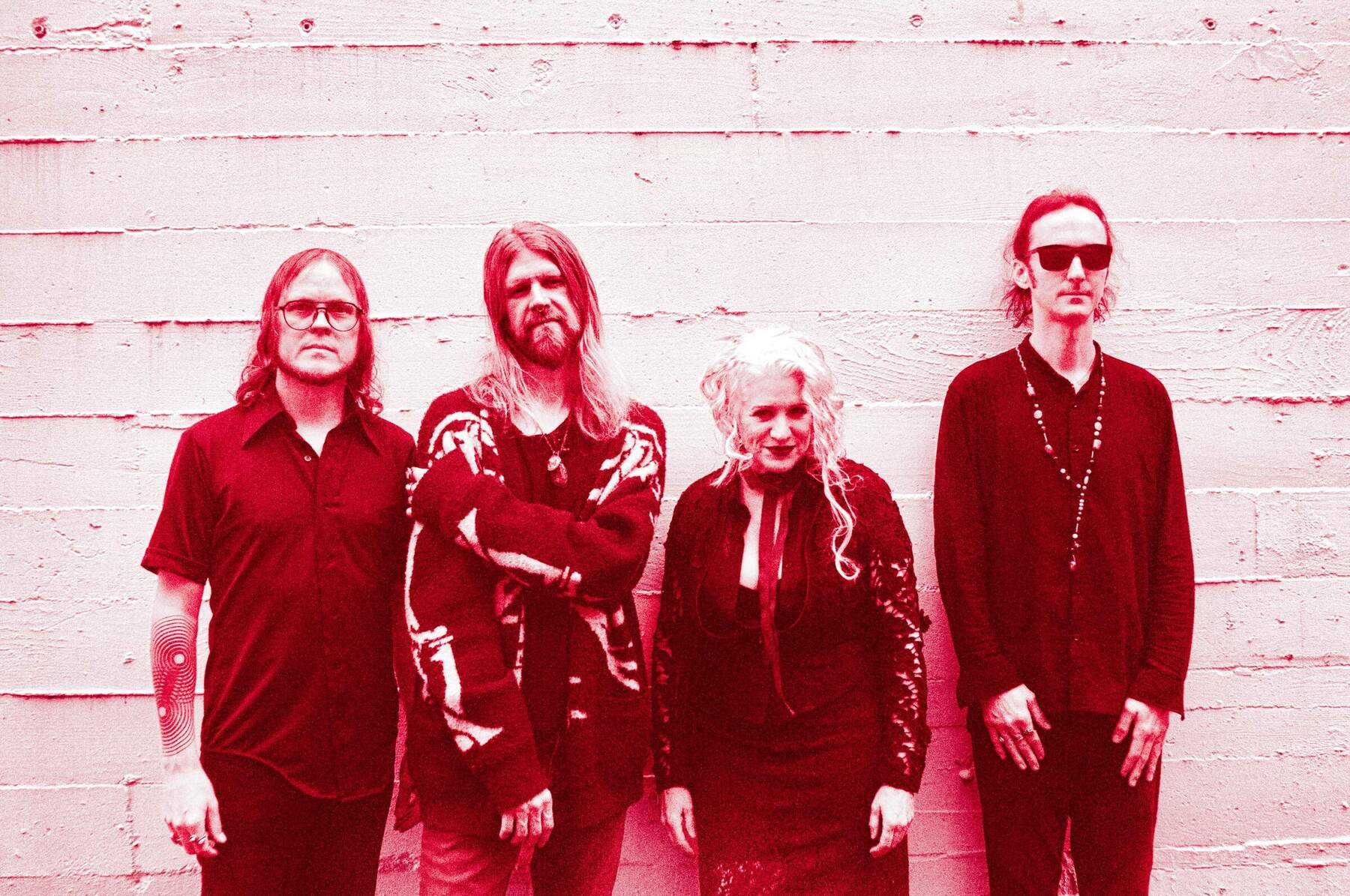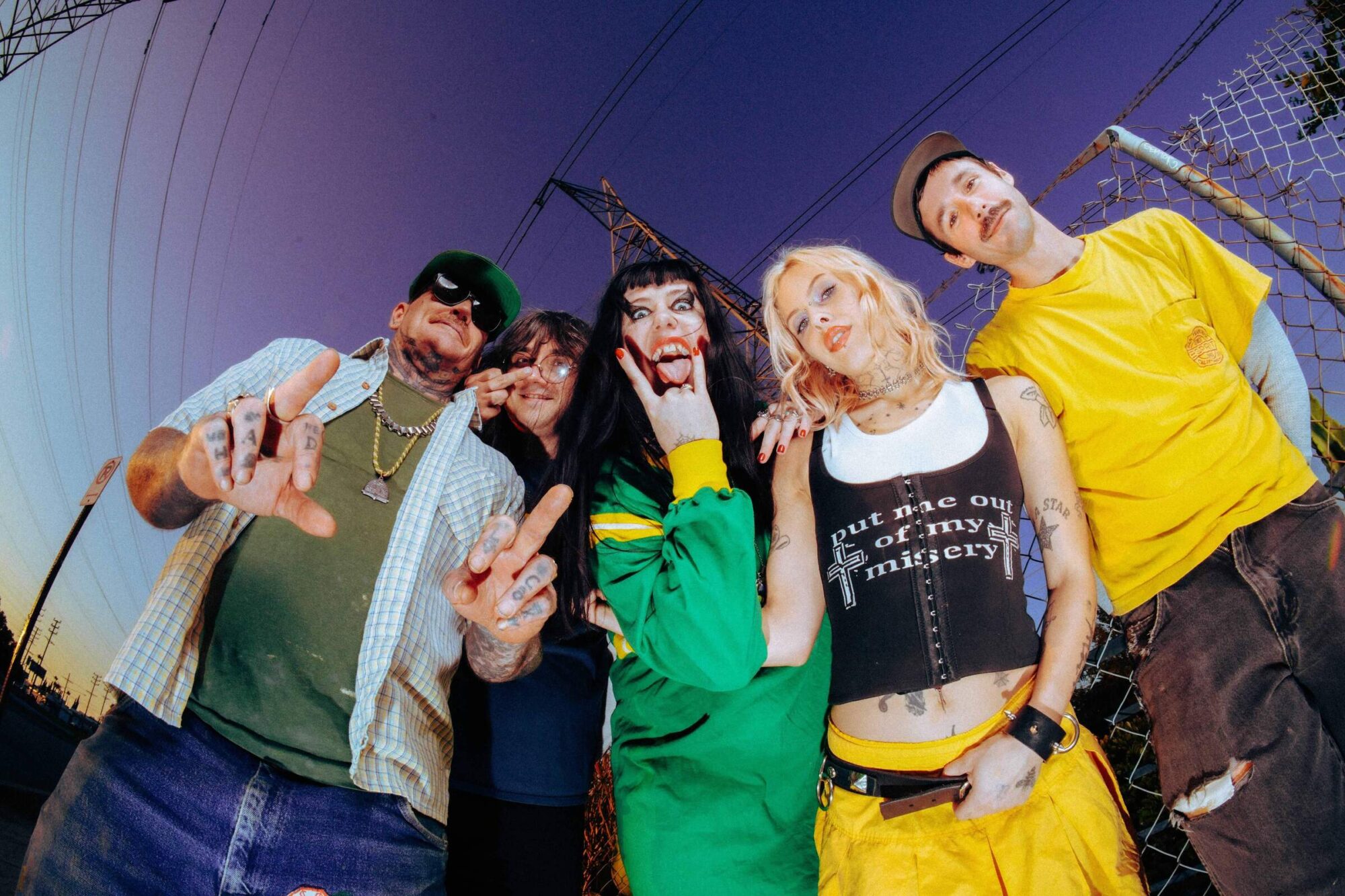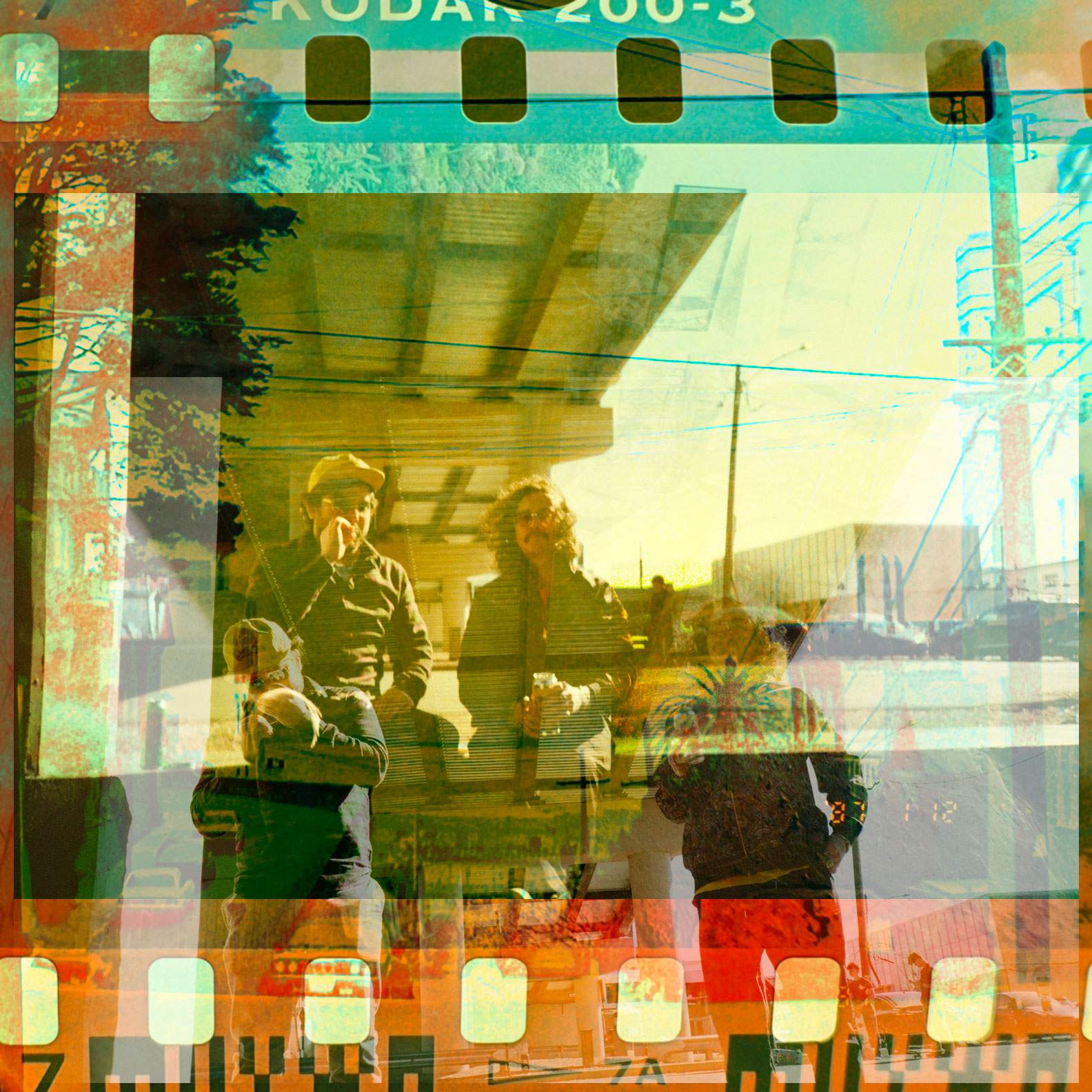Triptides Unveil ‘Shapeshifter’ With Exclusive Premiere and In-Depth Interview
We are premiering today the new Triptides album Shapeshifter alongside an in-depth conversation with the band, arriving officially on June 13 via Label 51 Recordings.
While many bands revisit familiar sounds, Triptides create something more elusive. Shapeshifter feels like a sonic world suspended between eras—like a lost reel-to-reel tape found in a mountain cabin, yet alive with a vitality all its own. The record glows with hazy warmth, wrapped in Farfisa organs, Wurlitzer pianos, and effervescent Rhodes tones that flow like liquid. It avoids mere retro pastiche and becomes a dreamlike architecture, opening a gateway to parallel musical dimensions where time bends and shifts.
Glenn Brigman, the band’s creative heart, describes the album’s birth as organic. Having first fallen for piano as a child, then shifting to guitar in his teens, Brigman returned to keyboards as the band’s center. This blend of old and new gives Shapeshifter its pulse. Recorded in isolation in the San Bernardino Mountains, the album carries the stillness of pine forests and winter snows. Yet it also channels the sophisticated craft of Stereolab and Air, and the exploratory spirit of early Floyd.
Brigman trusts instinct over overthinking, allowing songs to reveal themselves. Collaborators add their flavor but the Triptides’ signature remains clear. Looking ahead, the band hints at new sonic worlds including baroque pop, fuzzed psychedelia, 80s indie, and folk but remain open to wherever inspiration leads. Shapeshifter stands as their most fluid and fully realized journey yet. What’s next?
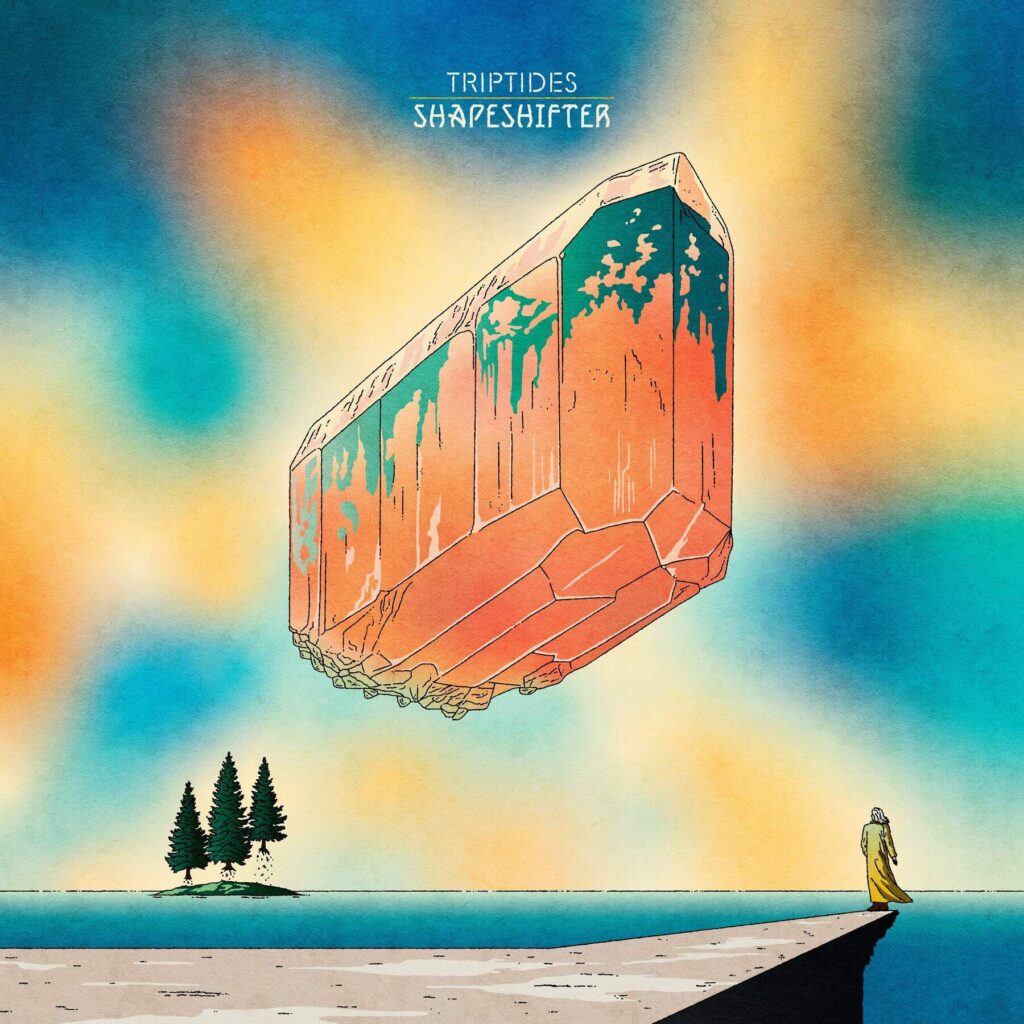
“There is something very satisfying about creating noise in the quiet of woods.”
Shapeshifter has this beautiful, hazy, yet fluid sense of movement, like it is guiding the listener through different dimensions of sound. Was there a particular moment in the recording process where you felt like you had fully unlocked the album’s identity? Or did it shapeshift (pun intended) throughout?
Glenn Brigman: I think I began to understand the identity of the record when I noticed the specific dimensions that each instrument was bringing to the equation. The way my Farfisa organ was combining with the Wurlitzer or Rhodes started pushing me deeper into a realm that I had begun to explore on the Starlight album. This album varies from Starlight in the way that I also added more synthesizer sounds to the palette, Korg MS20 and Roland Juno. I think in some ways the instrumentation created a new vibration, which then influenced the lyrics and attitudes behind each song. And thus, the Shapeshifter identity was created.
The album has a heavy emphasis on keys: Wurlitzer, Farfisa, all these warm, glowing textures. What drew you toward a more keyboard-forward approach this time around, and how do you think it reshaped the core of Triptides’ sound?
I have always played the piano. It was my first instrument as a kid. At some point in my teens I decided (as I am sure many young rock and rollers have) that the guitar was overall a cooler instrument to play in a band. So, I followed the guitar rock formula for a pretty long time after that, making albums based around guitar for about a decade. I began incorporating Farfisa organ around the Visitors album in an attempt to unlock the full Rick Wright, Floyd qualities that it brought to the recordings. Then I started adding electric piano when I was able to find a Wurlitzer 200. Eventually, I thought, why not just start crafting songs around the keys and not just adding them on later? And that was how Starlight was conceived, and to a greater extent the Shapeshifter album. I have always admired how groups like Stereolab and Air incorporated vintage keys into their sound while also bringing a totally fresh, modern perspective to what the keyboards are capable of. Klaus Johann Grobe is another group that does a great job of that. It is not all just “Light My Fire” and “The Logical Song” – you can really shape these instruments and create new and exciting combinations. I think that has given a different depth to the current Triptides sound.
You have mentioned recording in the San Bernardino Mountains, which sounds like an absolute dream. How much do you think the environment seeps into the sound of the record? Did the isolation and nature change how you approached songwriting or production?
I think there are certainly some elements of my environment that seep into the recordings: the lush pine and cedar trees, the blankets of fresh snow in the wintertime, the refreshing energy after jumping into a cool lake in the summertime. I imagine that there is a bit of that stuff melted into the tapes along with the music. I can also take my time with everything and turn up as loud as I need to because my house is built for cold winters with plenty of noise-canceling insulation. And then there is just something very satisfying about creating noise in the quiet of woods, bringing brand new music into the silent void.
There has always been this thread of time-traveling in Triptides’ music, whether it is ‘60s psych-pop, Laurel Canyon folk, or cosmic jazz-tinged moments. If Shapeshifter was a portal to a specific musical era or dreamlike world, where would it take listeners?
I think the Shapeshifter album is unique in the sense that I cannot really give it an exact time machine destination. I think it would lead more towards a dreamlike world or an alternate dimension. Maybe a different timeline where The Beatles continued into the 70s and got Stevie Wonder to play keys with them instead of Billy Preston. Or a world where all world conflicts have ended and love is the most important thing, but heartbreak can cause a nation to collapse.
“We have an entire garden of different inspirations and ideas”
You have spent over a decade building this incredibly rich and dynamic discography, yet each album feels like its own distinct universe. What keeps you excited about making new music? How do you push yourself to explore new creative territory without losing the essence of Triptides?
I think Triptides is such a sustainable musical world because it is not rooted in one particular genre or vibe. We have an entire garden of different inspirations and ideas that we water and grow. And sometimes you let the earth rest for a period and work on another garden or inspiration. We like so many diverse types of music that we need to keep exploring. That definitely keeps things exciting. But I think that the songwriting is what maintains the essence and provides the thread that ties everything together. And my vocals are pretty consistent as well, although I hope to have improved a little over the last 15 years.
So many of your songs feel like they exist outside of time, like they could be spinning on a dusty reel-to-reel in 1972 or floating through the airwaves in 2072. What is your relationship with nostalgia in your songwriting? Do you see it as an influence, a trap, or something else entirely?
Nostalgia can be a blessing and a curse creatively. You can get stuck in trying to capture it or you can let it happen when it happens and use it in a positive way. Recently I sent a new demo to a friend who replied, “this one makes me nostalgic, I am not sure why but maybe it is the chord progression.” I thought that was interesting because everyone defines nostalgia on their own terms. So, trying to use it as an influence can be dangerous because my definition of it could be vastly different than everybody else’s. But it is a powerful thing when you feel it. I had a music history teacher at Indiana University that would always say “never underestimate the power of nostalgia.” He was onto something.
Since you play so many of the instruments yourself, does your songwriting process start in a structured way, or is it more of a spontaneous build-up where one instrument pulls the others into existence?
Usually, it will start with the core instrument, whether it is guitar or keys (mostly keys on Shapeshifter). I think after that my mind starts trying to organize everything in a way that makes the most sense for the music. Drums and bass normally follow, but if I add a lead guitar next then maybe I will fill space that I would want to fill with a synthesizer. So I try to incorporate the instruments that seem more essential first and then let the following instruments cover the rest.
You mentioned wanting your music to be “emotional food” for people. Has there been a moment where a fan’s reaction to your music really stuck with you or made you realize the impact it has beyond just being songs on a record?
Absolutely. Over the years I have had some really nice messages from Triptides fans saying things like “I was going through a terrible breakup, and I heard your song and it really helped me get through it” or “My friend put on your song while I was peaking on acid, and it absolutely blew my mind and now I am a fan.” I have a friend who was listening to one of our songs as he went on a first date many years ago. Now they are getting married in a few months. These things definitely help me to appreciate my own art, which can be difficult as an artist in any medium. Meaningful stuff.
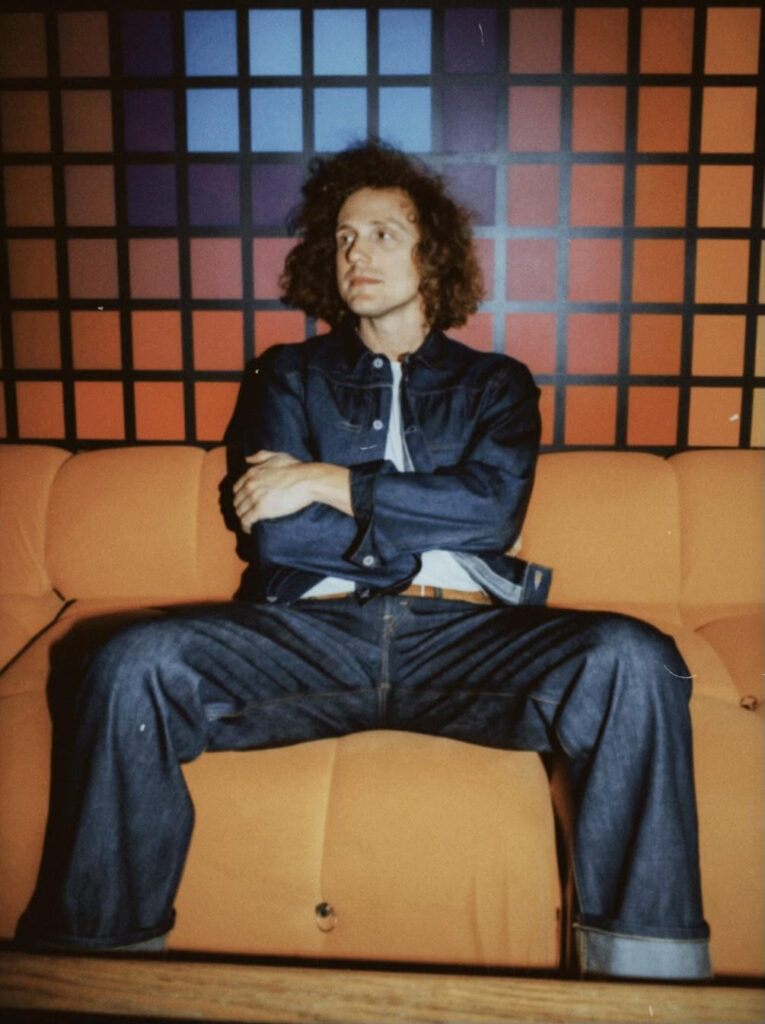
Triptides live is a whole different experience, more electrified and more kinetic. Do you think about the live translation when you are recording, or do you let the studio versions exist as their own sonic trip and worry about reshaping them for the stage later?
While we have made music that we specifically wanted to translate to the live stage, I do not think that is the norm. Most of the time I just enjoy using the studio as an instrument, not holding back on anything. It can be challenging recreating some of the more intricately produced material live, but it is also sort of fun trying to pull it off.
Speaking of live shows, do you have a favorite song from Shapeshifter that you are most excited to play in front of an audience? Or maybe one that you think is going to surprise people?
I think the track “Connection” is going to be great live. It has a driving Farfisa organ, some wild synth leads, motorik drums and bass. Definitely looking forward to performing that one for a live audience.
Over the years, Triptides has floated through different sonic spaces, from jangly psych to hazy jazz-pop. Do you feel like you are always chasing a certain sound in your head, or do you just let each record tell you where it wants to go?
I just follow the muse, whatever that may be. Sometimes that means picking up the 12 string and creating some jangly pop, sometimes it is sitting down at the Fender Rhodes and melting into some 70s grooves. I just try and record everything I can and once enough music starts to vibe together, I will create the rest of the record and try to follow that energy.
If you had to curate a “Shapeshifter listening experience” with non-musical elements, let us say a setting, a drink, a visual, and a book, what would the full sensory trip be?
I think it could be sitting beside an alpine lake, drinking a Jungle Bird cocktail, looking at the sunset, reading Vonnegut’s The Sirens of Titan.
“I kind of just let that happen.”
You have worked with different bandmates and collaborators over time, but Triptides still has such a distinct sonic fingerprint. Do you think that is something that comes naturally through your production style and songwriting, or is it something you consciously shape?
I think it is pretty natural. Our production techniques, tape machine, recording equipment, and instruments are pretty consistent. We have picked up some new gear over the years but have no problem busting out the Fender Mustang that I played at house parties in college to track a guitar part. Again, the songwriting is probably just how I write songs. I kind of just let that happen. Stephen Burns plays on Shapeshifter tracks and sings the song “Alter Echoes,” and he brings his own flavor. But we have also been playing music together since we were kids, so I think there is a consistency even to that.

Lastly, let us say we check in again five years from now. What do you hope Triptides has shapeshifted into by then? Are there any wild musical territories you have not explored yet but are dying to?
I am never good at the five-year plan stuff. Like I said, we just follow whatever inspiration is hitting us in the moment. I can tell you that we are currently working on several more records with their own distinct vibes: Beach Boys baroque pop, 80s indie rock, more fuzzy psychedelia, and folk rock. There is definitely a lot more music in the works. But we are staying open to whatever musical worlds present themselves to us, whatever they may be.
Klemen Breznikar
Headline photo: Alex Bulli
Triptides Facebook / Instagram / X / YouTube / Bandcamp
Label 51 Recordings Website / Facebook / Instagram / YouTube / Bandcamp

